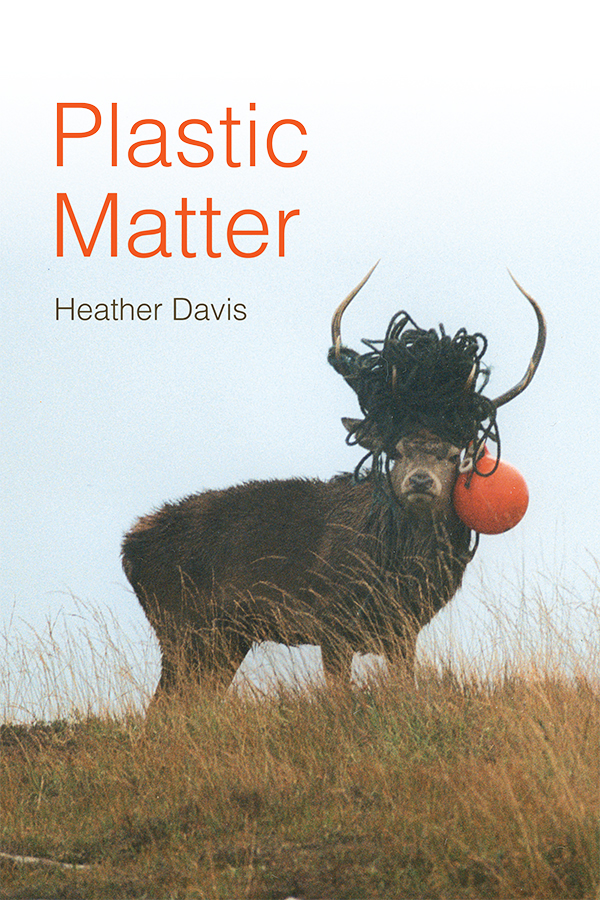Heather Davis’s Plastic Matter sheds light on the implications of plastic’s synthetic universality, inviting readers to reflect critically on their relationship with plastic material and also with matter more generally. She outlines concepts such as plasticity and globalized unlocality, arguing that plastic’s ability to take on various forms contribute to ecological disruptions, biological harms, and social inequalities. Davis highlights how plastic is an everyday, ubiquitous material whose harms are unevenly displaced with regards to race, sex, and class; for example, as waste that is continually dumped on the global South. She further details how the systems designed to handle plastic’s excesses cannot contain it, leading it to swell out and impact more communities, human and beyond. The book critiques dominant narratives of plastic as an ideal of Enlightenment progress, while emphasizing the complexity of plastic and the ambiguity of its role and our relations with it. But Davis also argues that thinking with plastic invites queer relationships with new kin. Davis thus encourages readers to think beyond plastic’s simple ubiquity and to challenge the apparent plasticity of matter.
Articles by Chayne Wild
Chayne Wild is a PhD student in the Alliance for Social, Political, Ethical, and Cultural Thought (ASPECT) at Virginia Tech. He studies incarceration, technology, discourse, new materialisms, critical theory, and environmental political theory. In his free time, he can be found playing frisbee with his dog Kuru, foraging mushrooms, or riding motorcycles in the Appalachian Mountains.
